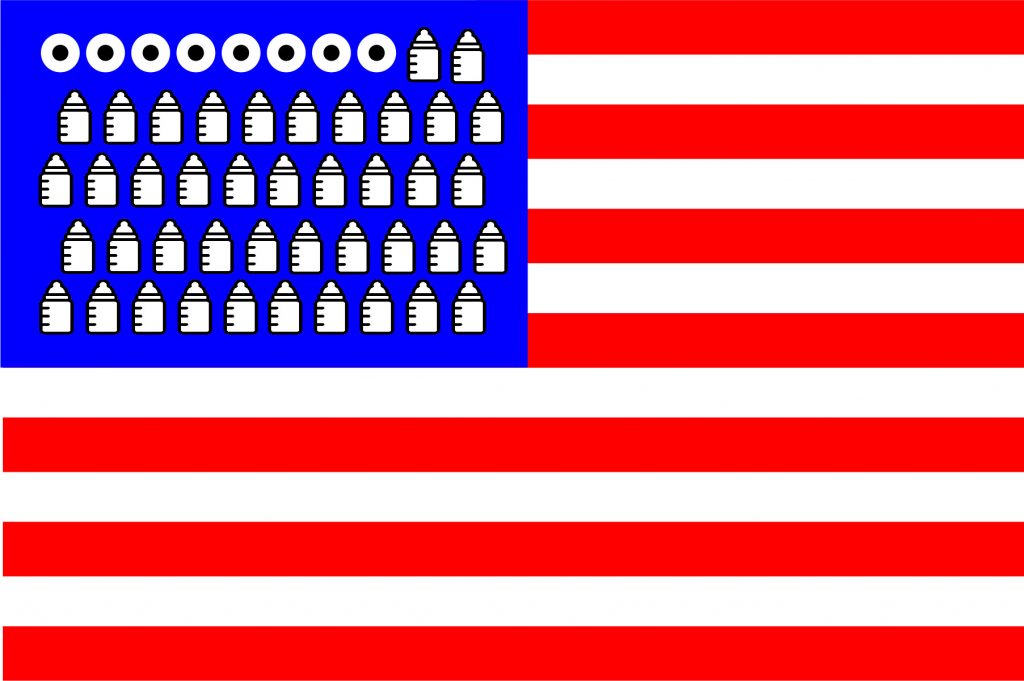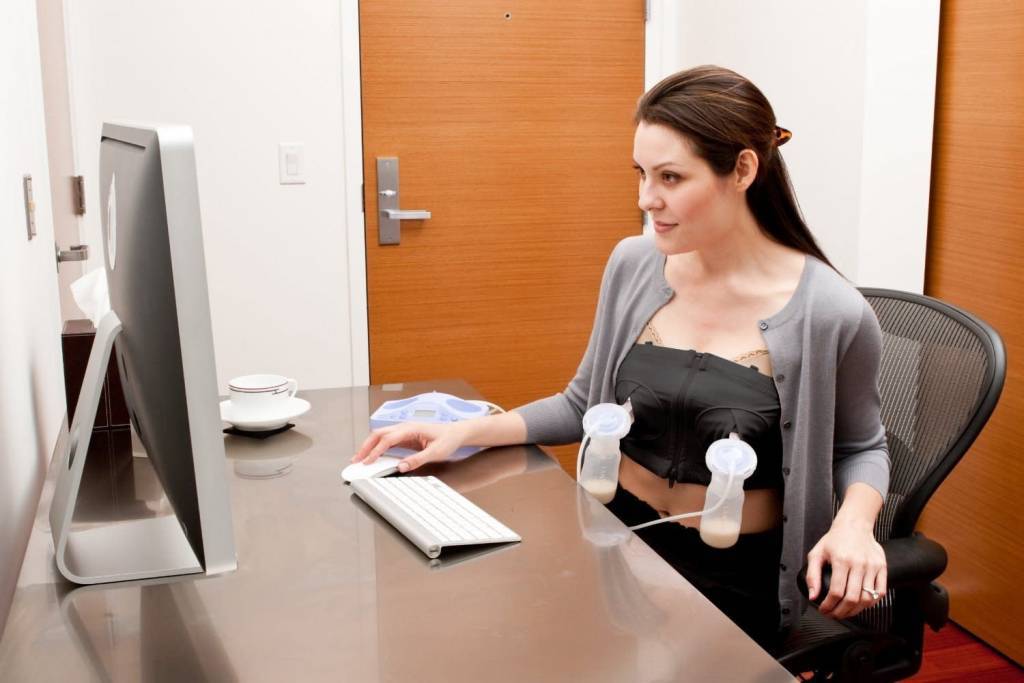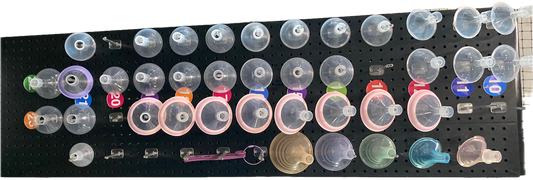
Breastfeeding in America and set up to fail
Share
"I'm American. I had never seen a mom breastfeed her baby in real life. I babysat and bottlefed when I was a teen. I have several nieces and nephews but my sisters didn't breastfeed. So there were me and my son, with no idea how it all worked. I wasn't just scared. I was terrified."
Our brains learn best by watching and with mentoring yet many American mothers have never actually seen a woman breastfeed, let alone learned from her. In cultures where everyone breastfeeds, women still have difficulty learning, but because everyone around them helps them and encourages them, they work through their challenges and keep breastfeeding.
Our culture boasts of family values, yet there is little cultural support, let alone celebration, for the breastfed baby.
Instead, bottles and pacifiers go hand-in hand with babies. They are visible everywhere: in babies’ mouths, on t-shirts, gift bags, party decorations, baby gifts, advertisements, health insurance brochures and doctor’s offices. The result is that at 6 months, only 13% of our babies are exclusively breastfed.
Here's a bag, just-in-case breastfeeding doesn't work.
Many hospitals still give new moms a promotional bag with bottles of formula and pacifiers. Americans are targeted by corporations interested in selling their product at nearly any cost. And we are accustomed to doing their marketing for them by accepting and using branded gifts and products. This is fine if you are freely choosing to do this. Many people enthusiastilcally wear their favorite sports team on their shirt or hat. We buy sneakers and food with certain logos and tell everyone we know how much we love the product. But we generally are not under duress when we choose to do this.
Have you heard about "The WHO Code?"
The USA has not adopted the The International Code of Marketing of Breastmilk Substitutes (The Code). The Code helps to protect vulnerable parents and innocent babies from predatory marketing. Predatory marketing in this case, is marketing a product (formula and teats/nipples) to a vulnerable market (new parents) using untrue statements. Claims that may seem plausible to someone who is in distress, such as a new mother who is tired and worried about her baby being hungry. Predatory marketing is the opposite of informed consent. In America, your doctor is a salesman for pharmaceutical companies. Health care workers are rewarded for promoting formula and that leads to you getting misleading information and making choices that you later regret.
How do you get around this?
The secret is in communities. When women are with other women who breastfeed, they talk. They share information, learn, troubleshoot, enjoy and keep breastfeeding.
All over America, there are sub-cultures of breastfeeding families everywhere for you to discover. Don’t follow the example of the pioneer woman living alone on the prairie. There is a new wonderful world awaiting when you join or create a breastfeeding community.
Where is my local breastfeeding community?
While you are pregnant or when you are out with your baby, scope out breastfeeding-friendly resources in your community. Places like playgrounds, libraries, public spaces, play spaces, cafés and stores are hubs where breastfeeding women gather.
Look for breastfeeding support groups at hospitals, WIC offices, baby stores, community centers, on Meetup.com, in OB/GYN’s, midwives’ and lactation consultants’ offices.
Join La Leche League or another breastfeeding support group and attend meetings starting in your first or second trimester.
If there are no support groups then start one!
Become an advocate for breastfeeding in your life and community. Host a 'Big Latch On' or participate in a 'Live Love Latch' event during World Breastfeeding Week (August 1-7) to raise awareness in your community.
If you can’t find a breastfeeding support group, start one. Pick a local baby friendly coffee shop or playground, pick a day and time. Post on Meetup.com, or put up a flyer at your local doctor’s office, church, library children’s room or preschool. Post your meeting on Eventbrite or on Facebook or other social media platform, or even in a community calendar like your local paper or Macaroni Kid.
It may take some time, but it might not. You only need one or two friends to start feeling supported.







